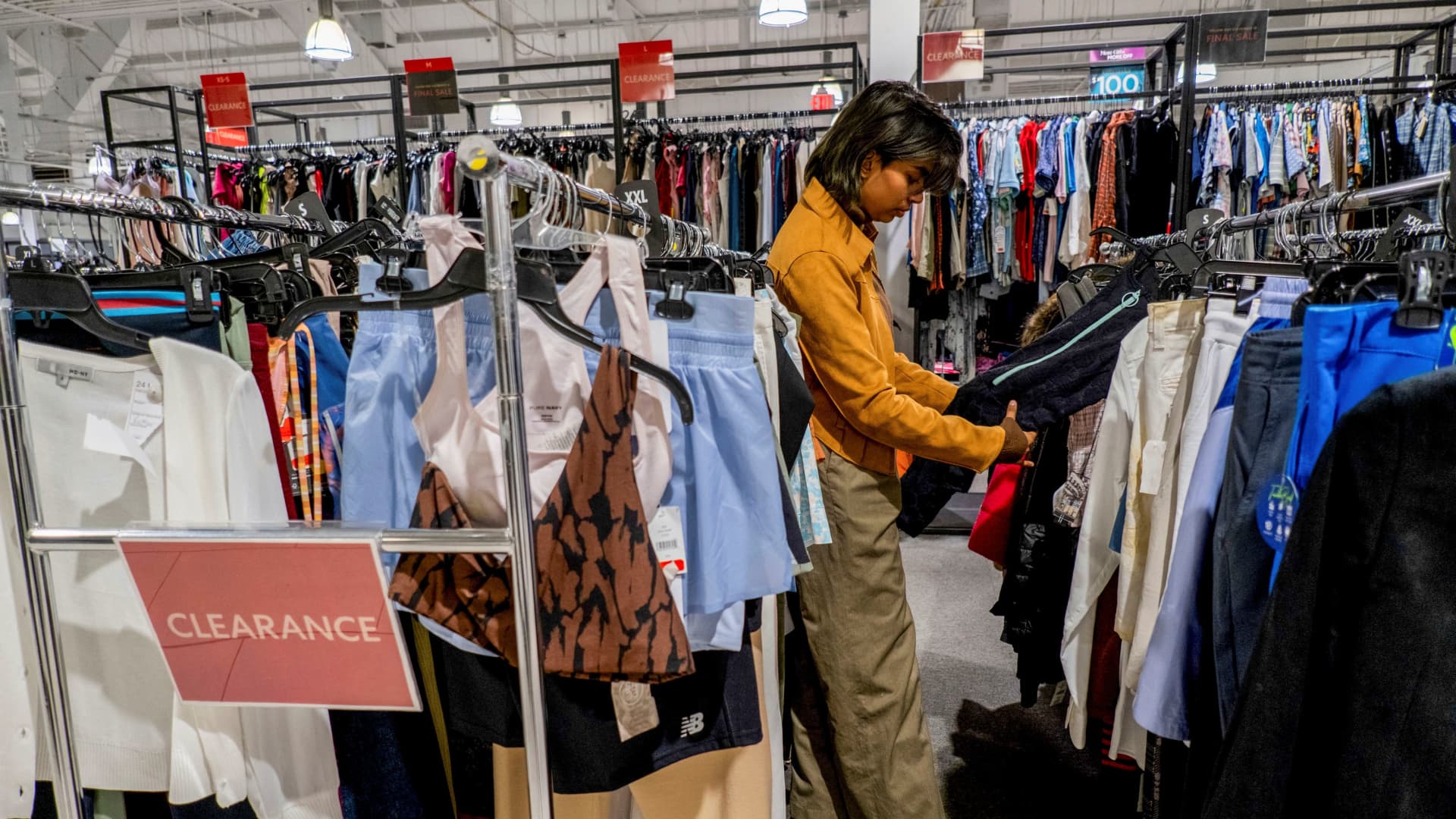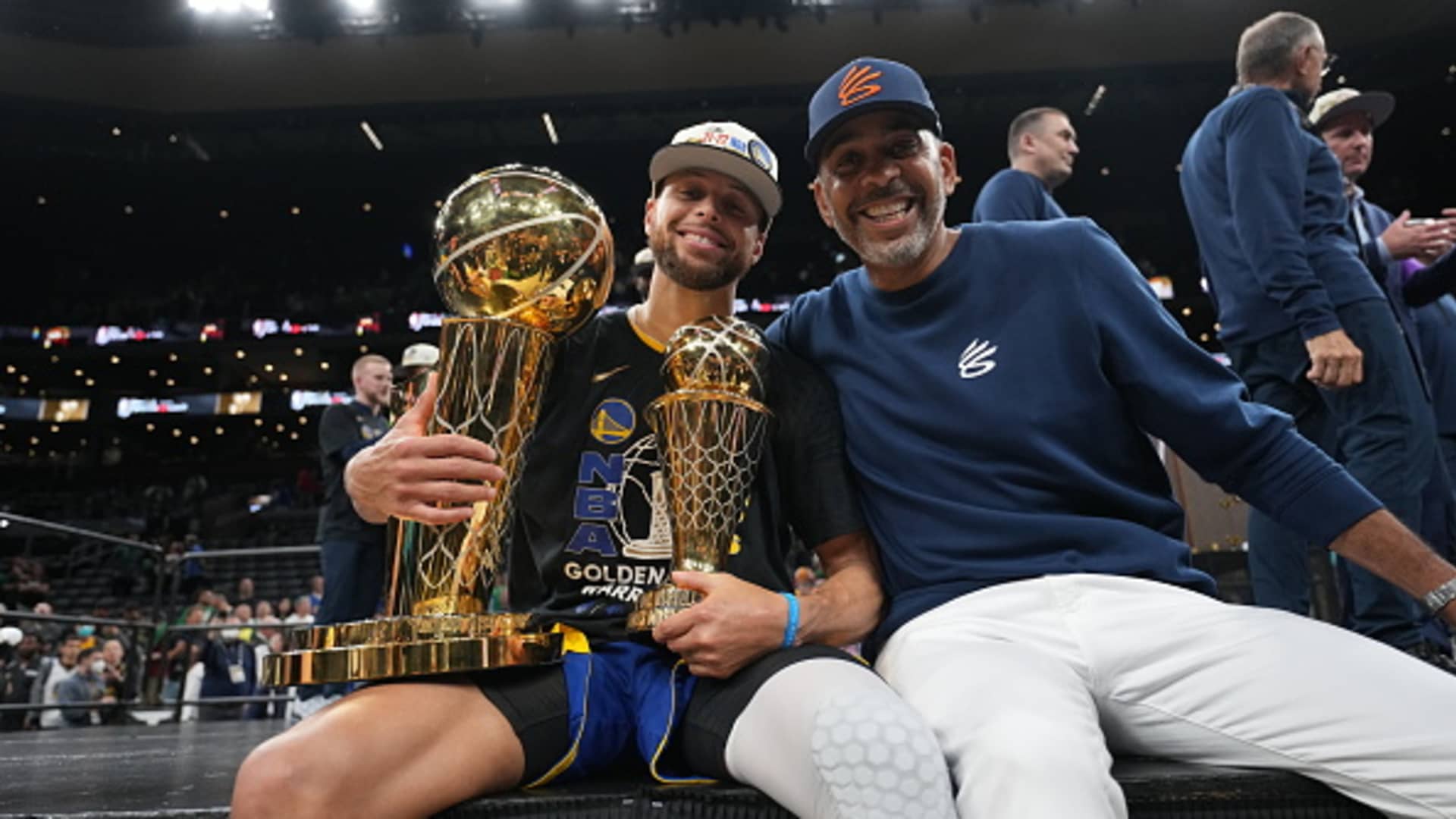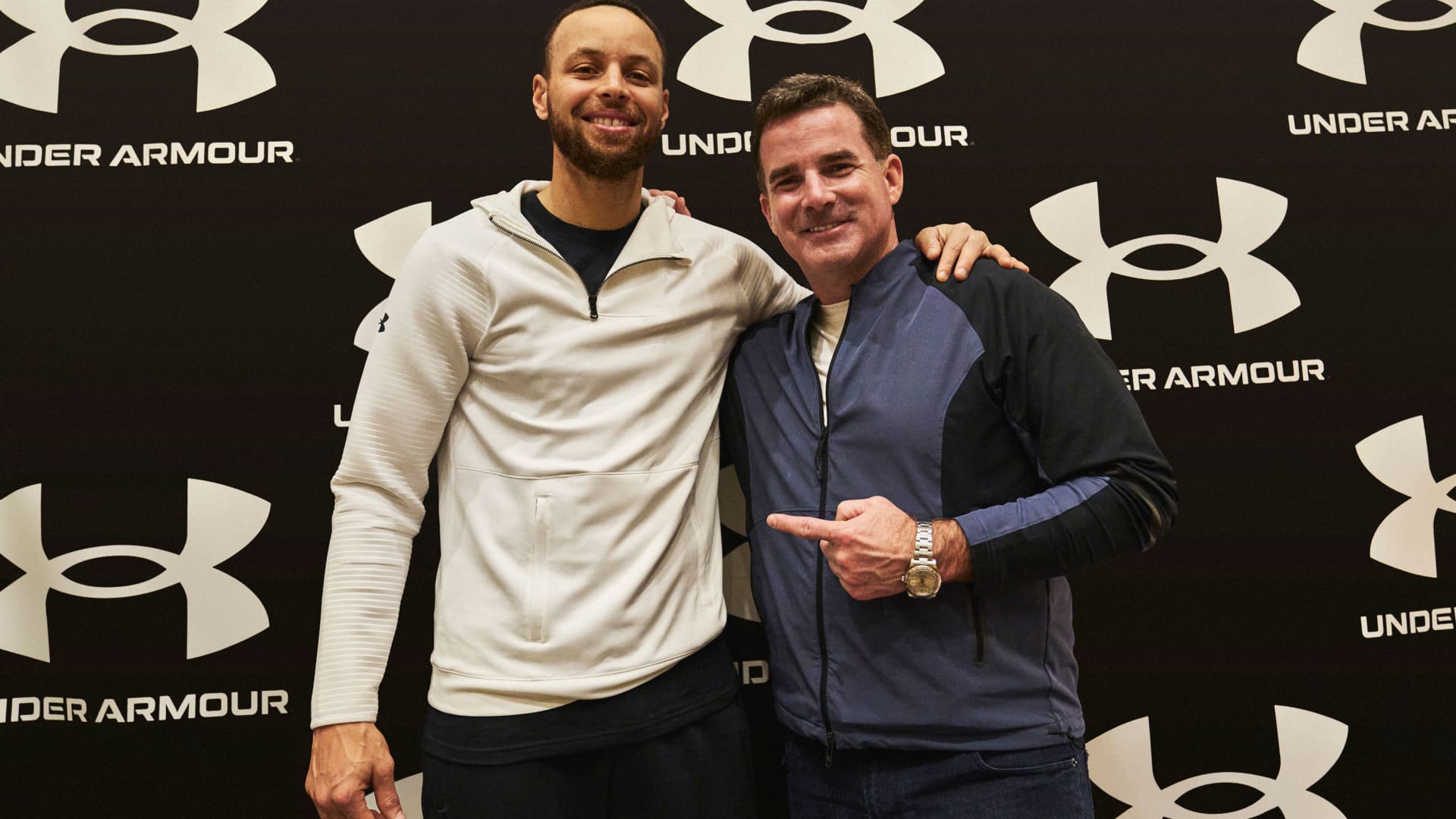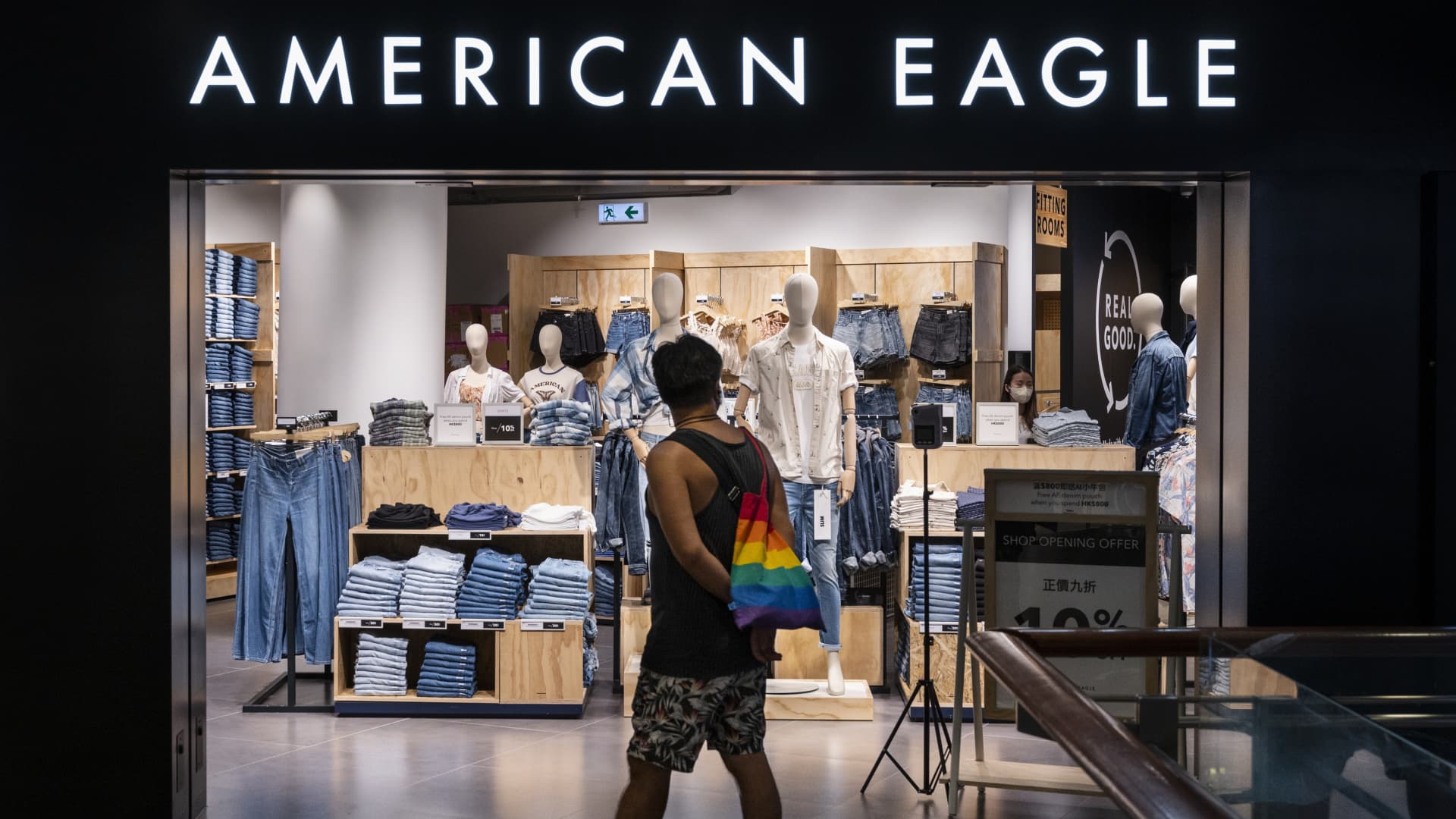Global Trends and Politics
Retailers Raising Prices

Impact of Tariffs on Retailers
Consumers who hoped tariffs would not hit their wallets keep getting bad news. As they reported earnings in recent weeks, multiple major retailers said they have already raised some prices or plan to hike them in the coming weeks to offset the duties. They include major grocers and consumer goods sellers Costco, Best Buy, Walmart, and Target.
President Donald Trump’s ever-changing trade policy has roiled retailers as they try to plan their supply chains. On earnings calls, they faced the difficult task of trying to appease investors who want them to protect their bottom lines and shoppers who could balk at price hikes.
In some cases, companies have been explicit, citing the estimated toll tariffs will take on their bottom lines and breaking down which countries their supply chains rely on. Other retailers have been less forthcoming, avoiding the word "tariff" and instead blaming strategy shifts or price hikes on "macroeconomic uncertainty" — or simply refusing to point the finger at all.
Many retailers have reduced or withdrawn their full-year guidance because of tariffs. Companies such as Abercrombie & Fitch, Macy’s, and Best Buy have slashed their profit outlooks. Meanwhile, American Eagle, Canada Goose, Ross, and Mattel pulled their full-year guidance.
After Trump implemented steep tariffs on dozens of countries in April, his administration has temporarily cut them to lower — but still significant — levels. Imports from China face a 30% duty, while goods from many other nations are subject to a 10% duty. A federal trade court struck down many of those tariffs on Wednesday, only for an appeals court to reinstate them, adding to the uncertainty retailers face.
Economists on both sides of the aisle agree that tariffs are inflationary and the cost will likely be passed on to consumers, though government data has not showed a clear effect yet. A majority, 68%, of U.S. CEOs say they have either increased prices already or are considering doing so this year in the face of tariffs, according to a new survey by Chief Executive Group and AlixPartners.
Retailers’ Plans to Raise Prices
Here’s a breakdown of what several major retailers have said about their plans to raise prices as a way to mitigate the tariff impact.
Brands that have already raised some prices
Customers look over personal health items displayed at a Costco branch.
Executives of the warehouse club retailer told investors that tariffs have forced the company to tweak its supply chain and raise prices in some cases. Costco has absorbed tariff costs for some goods, while it has increased prices in other instances, said CFO Gary Millerchip.
Best Buy has already raised prices on some items to offset tariff costs, CEO Corie Barry said on a call with reporters. Changes took effect by mid-May. She declined to say which items are affected and called price hikes "the very last resort" for Best Buy.
On SharkNinja’s latest earnings call in May, CEO Mark Barrocas said the company has already increased prices for several of its key products in response to tariffs and will "continue to look for additional opportunities" to do so. As an example, he said the company recently raised the price of one of its Ninja espresso machines from $499 to $549 and saw "no degradation in demand."
Executives from Newell Brands, which owns stroller company Graco as well as Rubbermaid, Yankee Candle, Paper Mate and Sharpie, said during an April 30 earnings call that the company has raised prices on its baby gear by about 20%. The company said it is equipped to handle Trump’s tariffs, unless he raises duties on imports from China again, since the majority of baby gear sold in the U.S. is made in China.
Retailers that say they plan to increase prices
Walmart shoppers will likely see price increases toward the end of May and more in June because of tariffs, said Chief Financial Officer John David Rainey during an interview. Executives did not specify during the company’s most recent earnings call how much more Walmart c
Global Trends and Politics
Stephen Curry Opens Up About Impostor Syndrome

Introduction to Stephen Curry
Stephen Curry is a two-time National Basketball Association Most Valuable Player, a four-time league champion, and among the greatest shooters of all time. He also owns a media company, a bourbon brand, a golf league for kids, and a philanthropic foundation that gives back to students in Oakland, California.
Overcoming Impostor Syndrome
Yet, even the Golden State Warriors star suffers from impostor syndrome. "I’m human," Curry said in an interview. "Like everybody, you have doubts about yourself, you have impostor syndrome at times." Curry is the son of former NBA star Dell Curry, who played 16 seasons in the NBA. While Stephen grew up on the sidelines watching his dad play, he says because of his stature and underdog mentality, he didn’t grow up with the expectation to play in the league.
Early Life and Career
"I couldn’t have dreamt this," said Curry, who was selected as the No. 7 overall pick in the 2009 NBA draft and went on to become the all-time greatest 3-point shooter in NBA history. The 11-time NBA All-Star says he has embraced his underdog status and used it as motivation throughout his tenure at Davidson College and into his time in the NBA. "Matching the God-given abilities and the work ethic and just being able to lose myself in the game I think is a good formula," Curry said.
Business Ventures and Philanthropy
Off the court, Curry has similarly found success. He heads Thirty Ink, a house of brands that includes his different business ventures across entertainment, marketing, fitness, lifestyle, and technology. He’s also passionate about giving back. Through his nonprofit Eat. Learn. Play., Curry has raised nearly $100 million for Oakland schools over the past five years. There is also the Underrated Golf Tour, where Curry works to get minorities out on the links in a traditionally white sport. "From a national perspective, a lot of the narrative is trying to peel back programs and opportunities that are allowing people to have just a fair shot and a fair chance. Everything that we do and what I can control is about true equity," he said.
Balancing Life and Commitments
With all these commitments on his plate, Curry said he grapples with whether he is fulfilling his full potential in all the different areas of his life. "We all like to be a better husband, a better father, more present at times, just because we’re pulled — I’m pulled — in a lot of different areas," Curry said. As he navigates the pressure that comes with being a star basketball player and a public figure, Curry said he has learned to enjoy the journey. "All of these realities are wild to me, and sometimes you just gotta get out of your own way and enjoy it," he added.
Conclusion
Stephen Curry’s journey is a testament to hard work, dedication, and the pursuit of one’s passions. From his early days as an underdog in the NBA to his current status as a champion and successful entrepreneur, Curry continues to inspire and make a positive impact on his community.
FAQs
Q: What is Stephen Curry’s background in basketball?
A: Stephen Curry is the son of former NBA star Dell Curry and grew up watching his dad play. He was selected as the No. 7 overall pick in the 2009 NBA draft and became the all-time greatest 3-point shooter in NBA history.
Q: What business ventures is Stephen Curry involved in?
A: Curry heads Thirty Ink, a house of brands that includes his different business ventures across entertainment, marketing, fitness, lifestyle, and technology. He also owns a media company, a bourbon brand, and a golf league for kids.
Q: What philanthropic work is Stephen Curry involved in?
A: Through his nonprofit Eat. Learn. Play., Curry has raised nearly $100 million for Oakland schools over the past five years. He also works to get minorities involved in golf through the Underrated Golf Tour.
Q: How does Stephen Curry handle impostor syndrome and pressure?
A: Curry acknowledges that he suffers from impostor syndrome and pressure but has learned to enjoy the journey and not get in his own way. He focuses on his work ethic and God-given abilities to stay motivated and grounded.
Global Trends and Politics
Under Armour’s Signing of Stephen Curry

Introduction to Stephen Curry’s Business Career
In 2013, Stephen Curry shocked the sneaker world by signing with then-upstart athletic company Under Armour over basketball powerhouse Nike. At the time, Nike controlled the vast majority of the NBA sneaker market. Under Armour was virtually unheard of in the basketball space. Under Armour founder and CEO Kevin Plank said, "We’re the underdog brand. We’re for the ones that were maybe born not big enough or tall enough or fast enough, or strong enough, or smart enough or clever enough."
The Deal with Under Armour
The deal was considered a defining moment in Curry’s business career, and it got done in part thanks to Curry’s locker mate at the Golden State Warriors, Kent Bazemore. Plank wanted Curry to be the brand’s first big star. But he knew that to sign someone of Curry’s caliber, the company needed to think outside the box. Plank said, "We actually targeted Ken, and we just said we’re going to overwhelm Ken with more like shock and awe of product, service, story, love, hug."
Under Armour’s Curry Brand
It wasn’t just Bazemore’s influence that landed Curry at Under Armour. There was also a botched Nike presentation in which company executives mispronounced his first name and used a recycled slide deck that still had Kevin Durant’s name on it. Plus, Under Armour offered Curry a deal worth $4 million a year, while Nike offered $2.5 million — and declined to match. Today, 12 years later, Curry has made a dozen different shoes for Baltimore-based Under Armour and has developed a line of signature products that includes footwear and apparel. In 2023, the brand signed a new long-term extension and made Curry the president of the newly formed Curry Brand, housed under the company’s banner.
Impact on Curry’s Business
As part of that deal, the 11-time NBA All-Star was given 8.8 million Under Armour common shares, valued at $75 million at the time, in addition to other awards and incentives. While Curry has profited handsomely from his success at Under Armour, the brand has had its share of ups and downs. Changes in leadership, strategy and competition have led to dramatic declines in Under Armour’s common stock price from an all-time high of $45.41 in 2016 to its current price of less than $6 per share. Some speculate the turmoil has hindered Curry’s off-court prospects.
Elevating the Under
Curry told CNBC that his relationship with Under Armour changed the way he thought about his off-court business. "It was the first time I really took an equity position in the company, and then you started to understand how every decision that you make and how you leverage not just the brand of me, but all the resources and opportunities I have around me to create value," he said. Curry also said Under Armour’s underdog message resonated with him. Curry, at just 6-foot-2 and 185 pounds, isn’t the typical size of an NBA superstar.
Community Impact
As part of his contract with Under Armour, a portion of the Curry Brand’s yearly revenue is invested in under-resourced communities, such as Oakland, California. Curry became connected to Oakland after moving there when he first became a Warrior in 2009. During NBA All-Star Weekend in February, Curry and Under Armour celebrated their 20th court refurbishment at Oakland’s McClymonds High School. The school received NBA-grade hardwood floors, new hoops, backboards and scoreboards. Under Armour says the Curry Brand has trained 15,000 coaches, supported 125 basketball programs and had an impact on 300,000 kids around the world.
Conclusion
Curry has carried over the same mentality to his other businesses with a mantra of "elevate the under." He has also helped pave the way for minorities in golf through his Underrated Golf Tour. Sponsors like Under Armour fund a series of regional tournaments to boost junior golfers of color. "The way that I tried to be a trailblazer on the court, we want to do the exact same thing … leveraging that impact when it comes to what it does for the community," Curry said.
FAQs
Q: What year did Stephen Curry sign with Under Armour?
A: 2013
Q: Why did Curry choose Under Armour over Nike?
A: Under Armour offered Curry a deal worth $4 million a year, while Nike offered $2.5 million, and also because of the underdog message of Under Armour.
Q: What is the Curry Brand?
A: The Curry Brand is a line of signature products that includes footwear and apparel, housed under Under Armour’s banner.
Q: How has Curry’s relationship with Under Armour impacted his business?
A: It changed the way he thought about his off-court business and helped him understand how to create value.
Q: What is Curry’s mantra for his businesses?
A: "Elevate the under"
Global Trends and Politics
American Eagle Outfitters Q1 2025 Earnings

American Eagle Outfitters Reports Disappointing Quarterly Earnings
American Eagle Outfitters reported quarterly earnings on Thursday that missed expectations, reflecting a $75 million write-down in spring and summer merchandise, following the retailer pulling its full-year guidance earlier this month due to macroeconomic uncertainty.
CEO’s Statement
"The first quarter was a challenging period for our business," CEO Jay Schottenstein said in a release. "While we are disappointed with the results, we are taking actions to better position the company and drive stronger performance in the upcoming quarters. Our brands remain resilient. The team is executing with urgency as we look to strengthen both the topline and profit flow-through."
Quarterly Results
The Pittsburgh retailer’s results do not come as a surprise for investors, considering it preannounced some of its results two weeks ago. At that time, it also announced it would withdraw its full-year guidance as it manages slow sales, steep discounting and a volatile macroeconomic environment.
Key Figures
- Loss per share: 29 cents adjusted vs. loss of 22 cents expected
- Revenue: $1.09 billion vs. $1.09 billion expected
Prior to the preannouncement, analysts had been expecting earnings per share to be an 11-cent profit.
Operating Loss and Revenue
The company, which makes fashion clothing targeted at teens and young adults, reported an operating loss for the three-month period that ended May 3 of $85.18 million compared with a net income of $77.84 million a year earlier. Excluding one-time charges related to restructuring and a supply chain optimization project, AEO posted an adjusted operating loss of $68.06 million. The loss also reflects "higher than planned" promotions and a write-off of $75 million in spring and summer merchandise.
Comparable Sales and Guidance
Revenue dropped to $1.09 billion, in line with expectations but down slightly from $1.14 billion a year earlier. Comparable sales were down 3% during the quarter, led by a 4% decline at the company’s intimates and activewear line, Aerie. The namesake brand saw comparable sales down 2%. AEO issued downbeat guidance for the second quarter, expecting revenue to be down 5% compared to an estimate of 4%, comparable sales down 3%, and gross margin down year-over-year.
Conference Call and Tariff Impact
Schottenstein said during a conference call with investors on Thursday that he was "disappointed" by the first-quarter results. He said earlier this month that the $75 million write-off is due to miscalculated merchandising strategies resulting in excess inventory and higher promotions. Jennifer Foyle, president and executive creative director for AE & Aerie,! said on Thursday’s call that the brand had misses on the merchandising product in a handful of key categories, which was compounded by a cool spring and a slow start to the quarter in February.
Mitigating Tariff Impact
CFO Michael Mathias said the company is on track to reduce its sourcing exposure to China to under 10% this year, with the fall and holiday season down to low single digits. He said the mitigated tariff impact to the full year is around $40 million, including a "couple million dollars" in the second quarter that is already embedded in the guidance, and the rest is spread out later in the year.
Conclusion
American Eagle Outfitters’ disappointing quarterly earnings reflect the challenges faced by the retail industry due to macroeconomic uncertainty and tariff impacts. The company is taking actions to better position itself and drive stronger performance in the upcoming quarters. With a focus on mitigating tariff impacts and improving merchandising strategies, AEO aims to strengthen its topline and profit flow-through.
FAQs
Q: What was the main reason for American Eagle Outfitters’ disappointing quarterly earnings?
A: The main reason was a $75 million write-down in spring and summer merchandise due to miscalculated merchandising strategies.
Q: How did the company’s comparable sales perform during the quarter?
A: Comparable sales were down 3% during the quarter, led by a 4% decline at the company’s intimates and activewear line, Aerie.
Q: What is the company’s guidance for the second quarter?
A: AEO issued downbeat guidance for the second quarter, expecting revenue to be down 5% compared to an estimate of 4%, comparable sales down 3%, and gross margin down year-over-year.
Q: How is the company mitigating the impact of tariffs?
A: The company is on track to reduce its sourcing exposure to China to under 10% this year, with the fall and holiday season down to low single digits.
Q: What is the expected tariff impact on the company’s full-year results?
A: The mitigated tariff impact to the full year is around $40 million.
-

 Career Advice6 months ago
Career Advice6 months agoInterview with Dr. Kristy K. Taylor, WORxK Global News Magazine Founder
-

 Diversity and Inclusion (DEIA)6 months ago
Diversity and Inclusion (DEIA)6 months agoSarah Herrlinger Talks AirPods Pro Hearing Aid
-

 Career Advice6 months ago
Career Advice6 months agoNetWork Your Way to Success: Top Tips for Maximizing Your Professional Network
-

 Changemaker Interviews5 months ago
Changemaker Interviews5 months agoUnlocking Human Potential: Kim Groshek’s Journey to Transforming Leadership and Stress Resilience
-

 Diversity and Inclusion (DEIA)6 months ago
Diversity and Inclusion (DEIA)6 months agoThe Power of Belonging: Why Feeling Accepted Matters in the Workplace
-

 Global Trends and Politics6 months ago
Global Trends and Politics6 months agoHealth-care stocks fall after Warren PBM bill, Brian Thompson shooting
-

 Global Trends and Politics6 months ago
Global Trends and Politics6 months agoUnionization Goes Mainstream: How the Changing Workforce is Driving Demand for Collective Bargaining
-

 Training and Development6 months ago
Training and Development6 months agoLevel Up: How Upskilling Can Help You Stay Ahead of the Curve in a Rapidly Changing Industry









